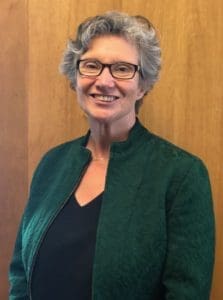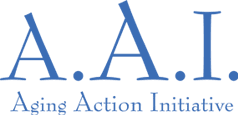 By Linda Jackson, AAI Program Director
By Linda Jackson, AAI Program Director
A few weeks ago I was finishing up the rather long and completely thorough Caste, Isabel Wilkerson’s review of race, racism, and caste in America, when this paragraph jumped out at me:
“Even the most privileged of humans in the West world will join a tragically disfavored caste if they live long enough. They will belong to the last caste of the human cycle, that of old age, people who are among the most demeaned of all citizens in the Western world, where youth is worshipped to forestall thoughts of death. A caste system spares no one.”
After all the horrors that Wilkerson documented, she nailed the last one that older people face, regardless of background.
This past COVID year tested the oldest and most frail of us with extreme isolation. All of us had to change the way we worked, jumping online for even more hours every day, ending in-person meetings, or continuing to work in person with increased risk and anxiety.
I’ve been thinking about how each generation has a defining moment. For my parents, it was the wars: World War I for my dad, and World War II for my mom. For me, it was the murder of President Kennedy and then the murder of Martin Luther King Jr. For my daughters it was 9/11. And now we have 2020, the year of COVID and the awakening of White America. With each pivotal moment, our world shifted and nothing was “the same” again. These experiences built resilience, acceptance, and perspective, in other words, wisdom.
One of the changes we are experiencing, heightened during COVID, is the long-anticipated transfer of leadership as boomers stopped working, by choice or not, and younger people stepped up to take our organizations to the next future. It’s a generational shift that is bringing new ways of looking at the systems that were constructed in the pivotal decades of the 1930s and 1960s. It’s time for these systems to change to meet the demands of the decade to come.
I just attended a statewide forum about older people and homelessness. Many of the speakers were younger. They spoke articulately about services provided across the state. They spoke eloquently about the racial disparities in health and the imperative we have today to prioritize, given limited funding, services for those who had lifetimes of accumulated disadvantages.
I waited in vain to hear how ‘ageism’ and ‘ableism’ intersected with the topic of homelessness. How did we end up in a place, in a system, where we end up talking about the triage of the most fragile and prioritize one over another? Where is the fury about the lack of funding to serve everyone? Instead, I heard some providers talk, with best intentions, with a patronizing familiar to older people. Some talked about how older people preferred privacy and autonomy. Really? Doesn’t everyone? Yet this preference for one’s own room and self-direction was somehow seen as an additional service burden. Where is the desire to advocate that everyone, regardless of age, ability, race or income, deserves to speak with a service provider who will respect their inherent dignity and offer them private and independent places to call home?
I long for equal understanding of ageism and ableism along with the other prejudices embedded in our culture.
This past week, a fabulous gift arrived in the shape of a launch of the UN Report on Ageism.
If you want a less-governmental review of ageism, check out Ashton Applewhite’s review of the UN Report on Ageism.
We live in a world where different ages are isolated from each other – and afraid of each other because that separation. The work to understand ageism and ableism will help us help each other. That would be a good antidote to our cultural and pandemic isolation.
Isabel Wilkerson ends Caste with this lament: “Even the longest lived of our species spends but a blink of time in the span of human history. How dare anyone cause harm to another soul, curtail their life or life’s potential, when our lives are so short to begin with.”
COVID has shown us that change is possible. Let us keep working to end harm to all souls, and to expand life’s potential for each person we meet.
Keep up the good work ~ Linda

